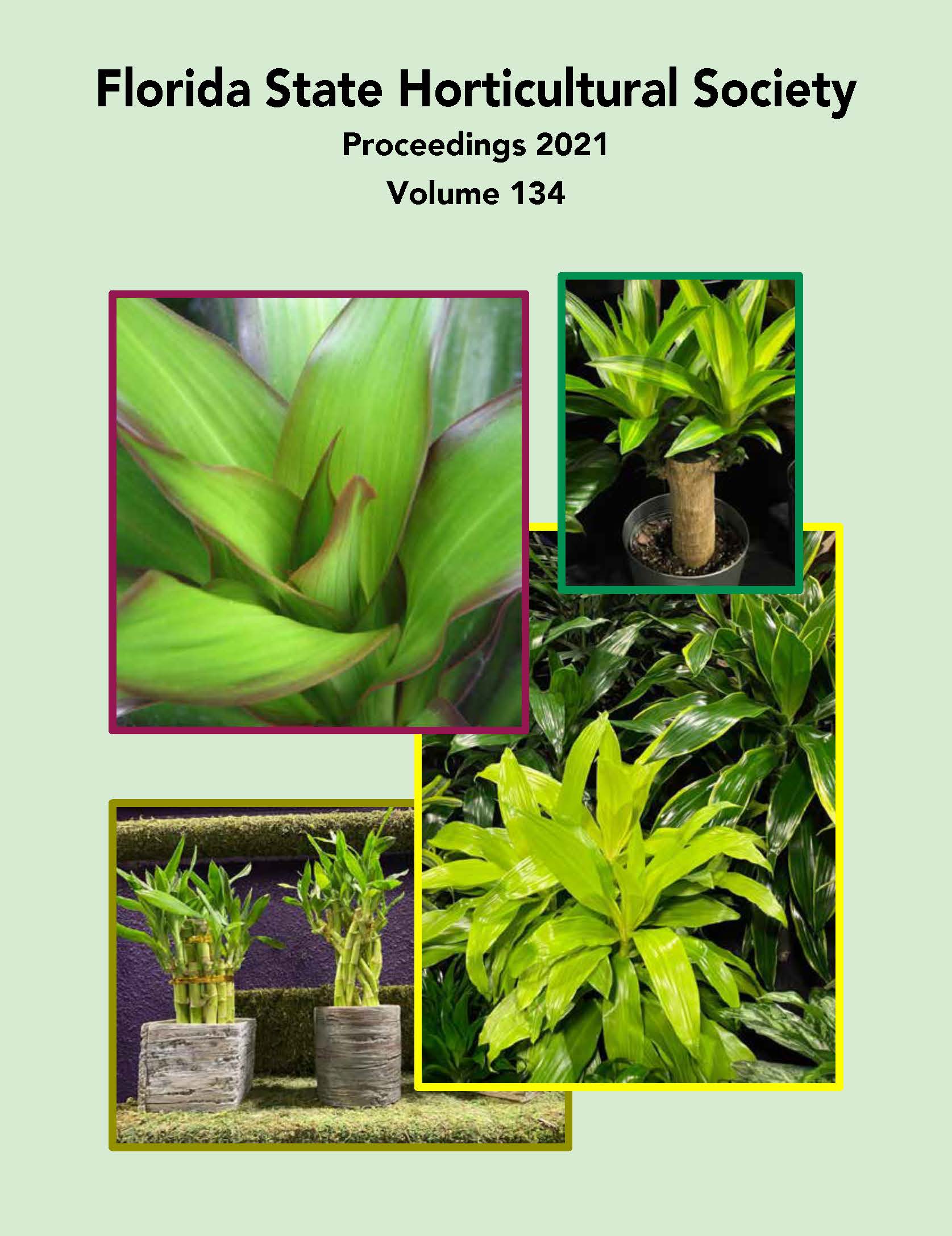Ripening Inhibition and Quality of Selected Tropical Fruits in Relation to 1-MCP Controlled Release Technology from Hazel Technologies
Abstract
The use of in-package 1-MCP technology shows potential to extend distribution and broaden consumer availability of some tropical fruits, as well as reduce food waste by extending the shelf life of these ethylene-sensitive commodities. In this study, the Hazel Technologies 1-MCP slow-release sachet was evaluated for its effectiveness in extending the shelf life of six tropical fruits. These were mango (Mangifera indica), atemoya (Annona × atemoya), passionfruit (Passiflora edulis), Guatemalan-West Indian hybrid avocado (Persea americana), guava (climacteric and nonclimacteric types) (Psidium guajava), and Maridol type papaya (Carica papaya). The fruits were harvested from the University of Florida/IFAS (UF/IFAS) Tropical Research and Education Center in Homestead, FL and transported to the Postharvest Lab at UF/IFAS in Gainesville. Initial evaluations of ripeness and quality were performed before placing the fruit samples in the appropriate storage containers and conditions. Ripening parameters were monitored for control fruit and those treated with 1-MCP during storage until a significant percentage of the fruit were judged either to be overripe or unmarketable or when sufficient time had passed to accommodate any conceivable distribution marketing chain duration. Fruit quality was periodically assessed during storage. Based on the results of these experiments, the shelf life of these tropical fruits can be extended from 5 days up to 3 weeks with 1-MCP. Hazel Technology 1-MCP slow-release sachets resulted in slower ripening for 1-MCP-treated fruit compared to the control fruit, especially during the first week of storage. Irregular and non-uniform ripening was seen in some fruit, but the majority ripened normally if they did not become unmarketable due to decay.

